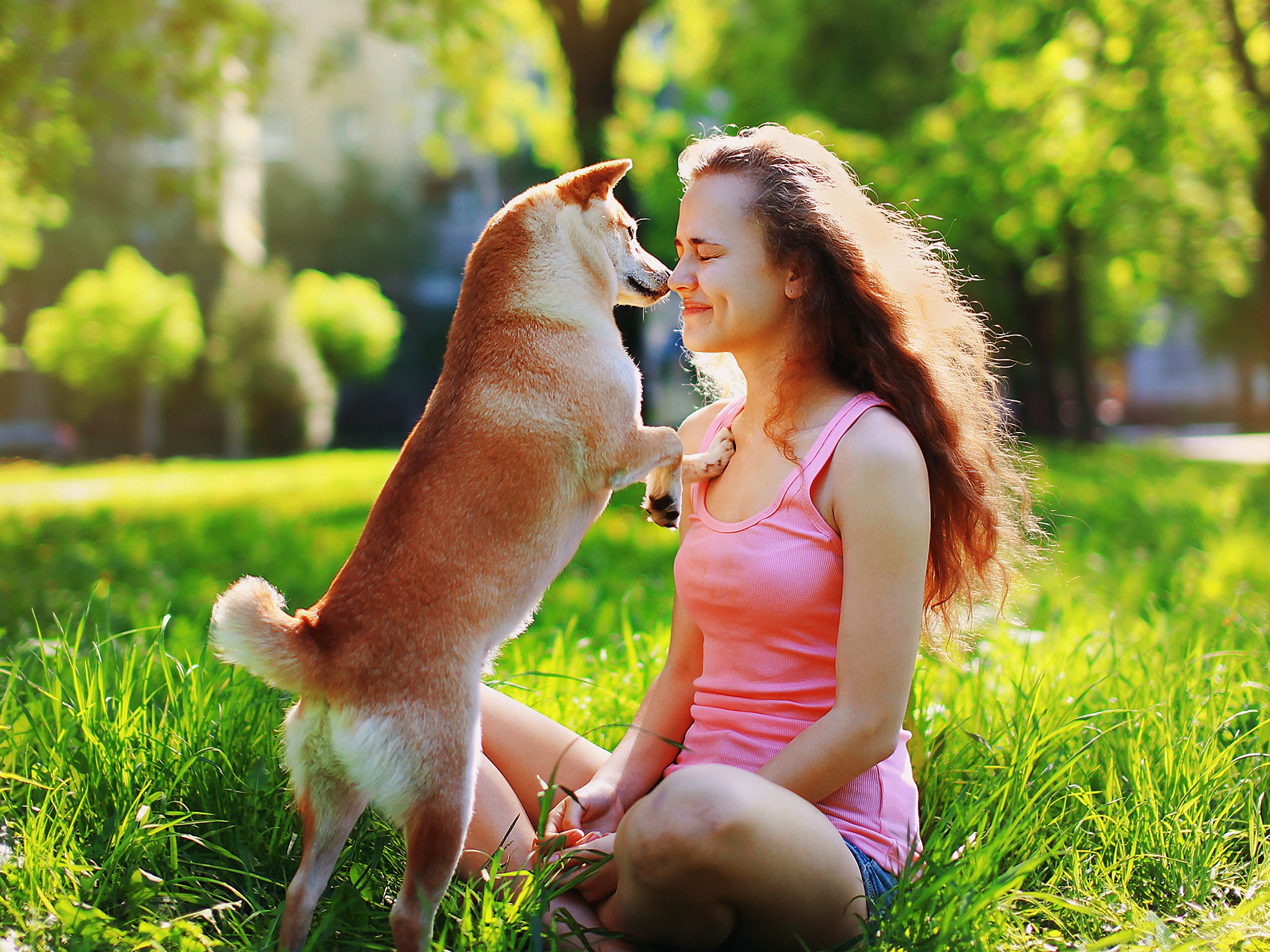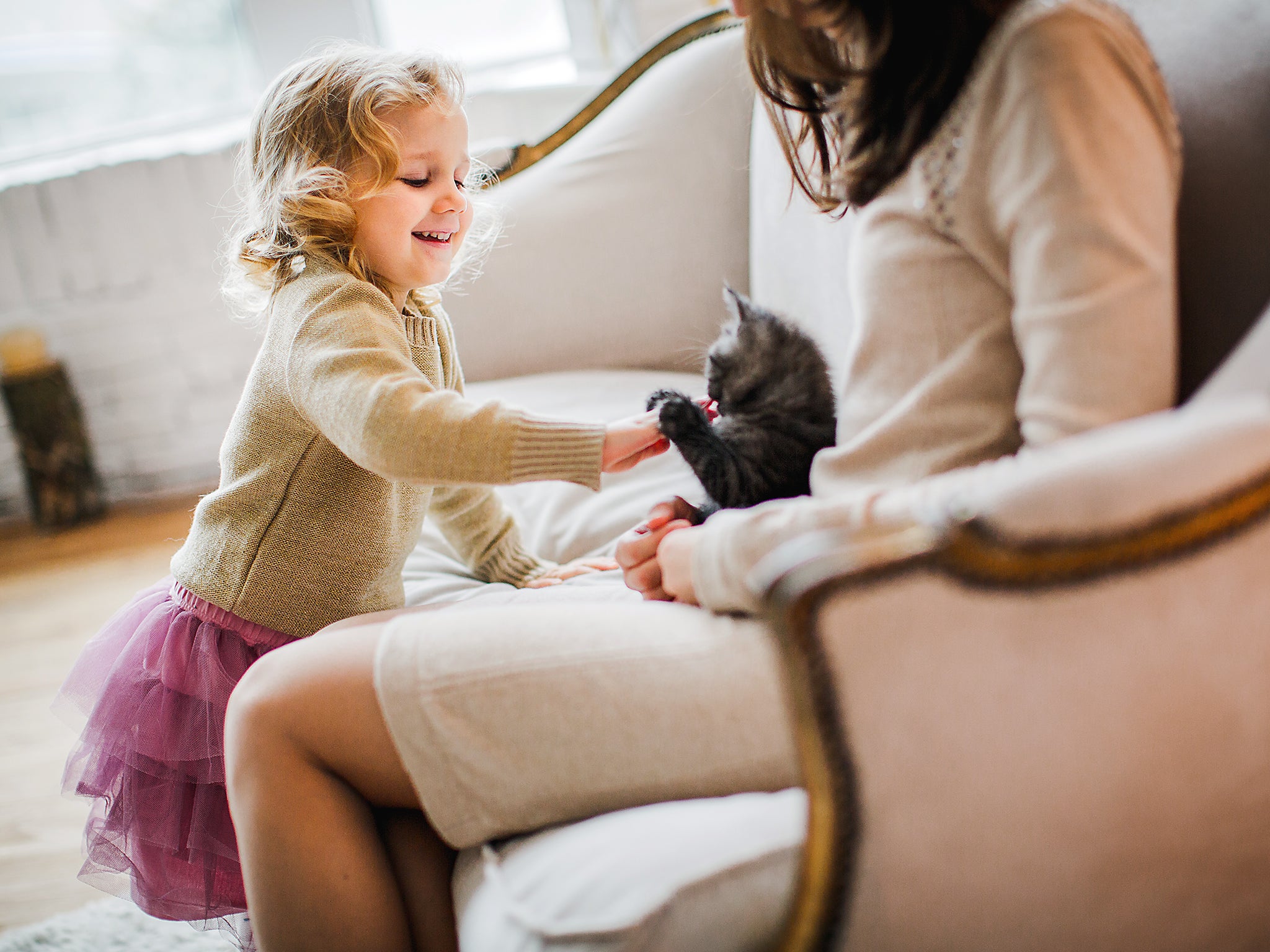Why the relationship between owners and pets is always an unconditional one
We all know our pets love us, but what is behind their unconditional love. Marie Carter investigates

Anyone who has ever owned a pet knows they have the capacity for the kind of unconditional love that is seen otherwise only between a human and its offspring.
The gentle nudge of a wet nose or a lick on the hand comes unbidden when we’re upset or feeling down. The bounding dash to the door to greet us is also a demonstrable sign of the strength of the human–canine bond, in particular.
A subtle change in our demeanour can be picked up and registered by our dogs or cats. Cats, although fiercely independent by nature, do possess a similar capacity for love and nurture, as my cat-owning friends can testify.
Studies have also shown that looking a dog in the eyes can boost levels of oxytocin (a hormone involved in social bonding), in both the person and the dog. It’s not just “cupboard love” triggered by a hungry belly. There is in fact nothing artificial that could ever replace that sheer authenticity of feeling. Dogs are the only species that, like a human child, runs to its human when it is frightened, anxious or just pleased to see us.
It is also the only animal, aside from other humans, that actively seeks out eye contact with people, and truly wants to be with us. Cats too come to us when we are down and will show they are pleased to see us with a lick on the hand or a gentle purr to express their own feelings of contentment.

Pets give people so much in terms of love and emotional support. Simply stroking a dog, cat, rabbit or even horse can lead to lower blood pressure and can combat stress. The feelings are reciprocated, as our touch can have therapeutic effects for our pets, particularly if they are feeling out of sorts.
Companion animals can provide support and friendship to society’s lonely, sick or elderly. They can be friends to those who do not easily understand the world around them. Autistic children for instance can be guided gently from their closed, confusing and isolated worlds by a patient and loving dog or cat. Anxiety disorders and depression also can be eased by the loving presence of a pet.
Sophie and Nell, my Cavalier King Charles Spaniels, instinctively know when I am under pressure or upset about something. They know what a “hug” and a “stroke” mean, and offer both eagerly.
The wider bond between people and dogs has strengthened over time, around 30,000 years to be precise. Canines have the unique ability to pick up on how we are feeling according to various studies, and similar research is being carried out with cats. For example, animal cognition scientists at Emory University in the US trained dogs to lie still in an MRI machine and used fMRI (functional magnetic resonance imaging) to track their neural responses to the smell of people and dogs, both familiar and unknown. Because dogs navigate the world through their noses, the way they process smell offers a lot of potential insight into how they interact with the world around them.
The scientists found that dog owners’ aroma actually sparked activation in the “reward center” of their brains, called the caudate nucleus. This effectively found that canines have the ability to distinguish between us and the huge amount of other olfactory stimuli around them.
In Budapest, researchers at Eotvos Lorand University studied canine brain activity in response to different human and dog sounds, including voices, barks and the meaningful grunts and sighs both species emit. Researchers discovered that happy sounds in particular light up the auditory cortex in both people and dogs. This strengthens the argument that humans and canines have a uniquely strong and resilient bond.
Many people rail against the increasing “humanisation” of our pets, but I think that’s wrong. People aren’t generally trying to turn their pets into little humans. They are instead seeing companion animals increasingly as loving, sentient creatures that, as even science has proven, truly love us. Our pets deserve human-grade food, a warm and safe place to rest, plenty of exercise and our unconditional love and attention.
Perhaps it’s a sign of the good side of our human natures that we are increasingly willing to provide these things?
Marie Carter is the editor of Pets Magazine (www.petsmag.co.uk)
Join our commenting forum
Join thought-provoking conversations, follow other Independent readers and see their replies
Comments
Bookmark popover
Removed from bookmarks